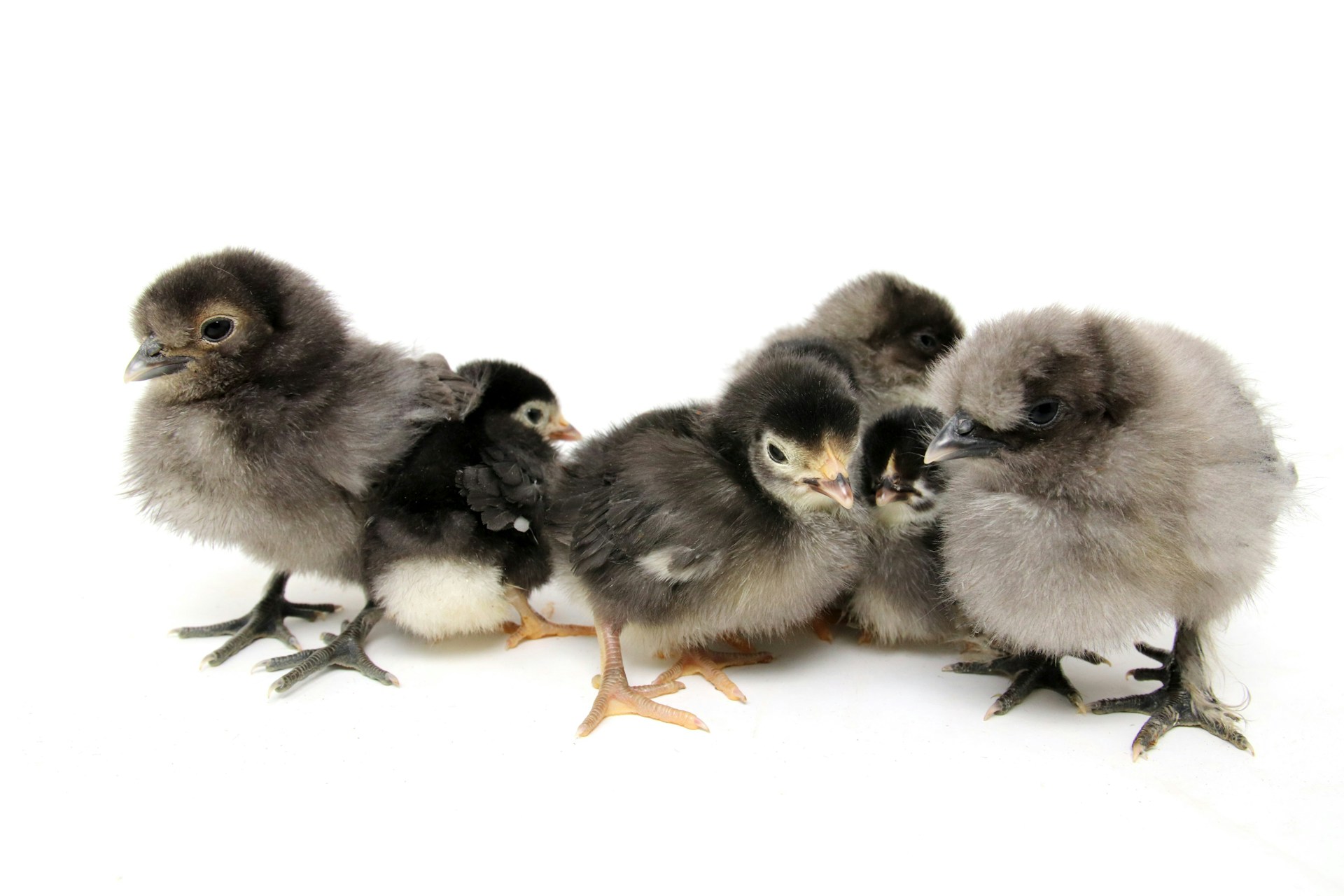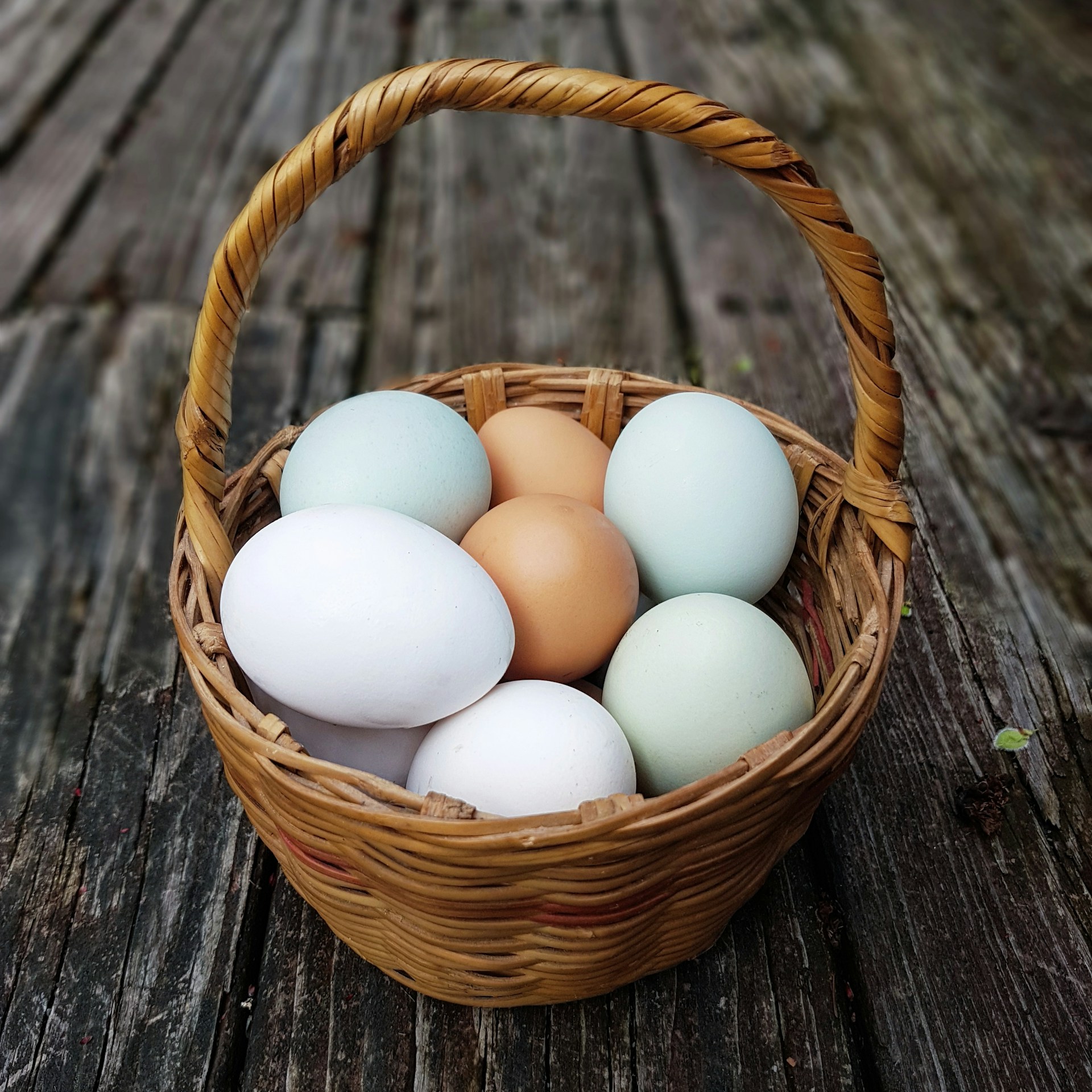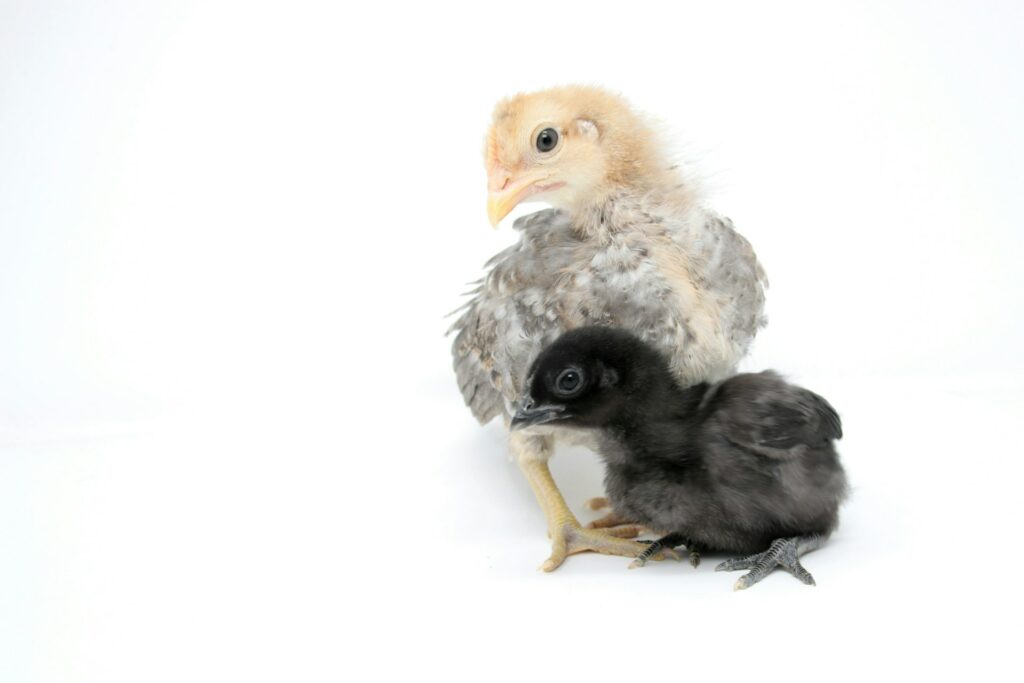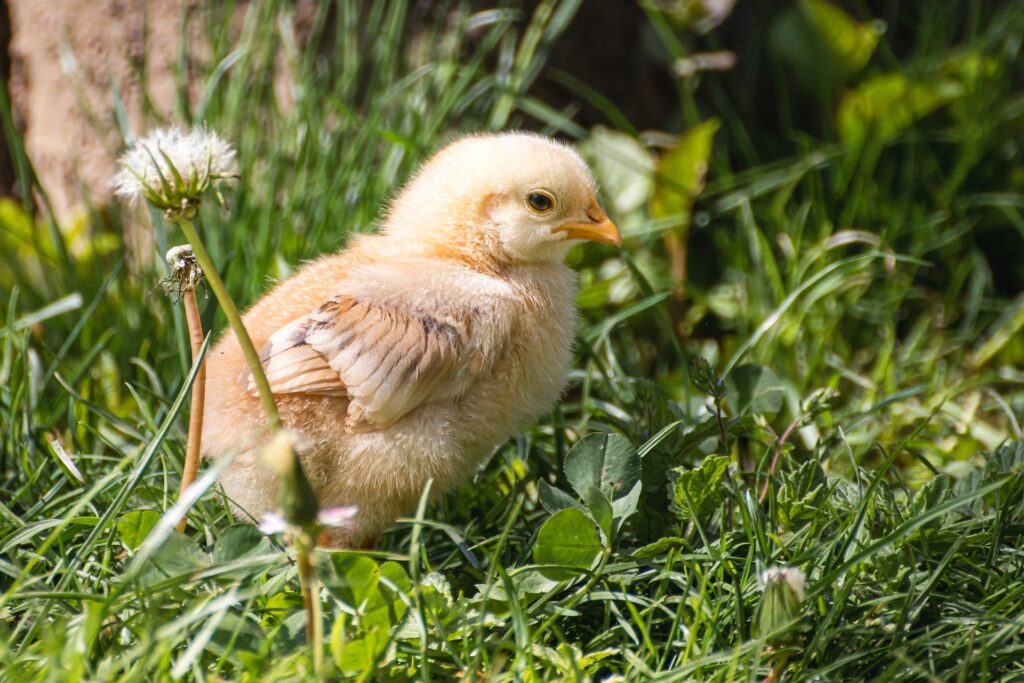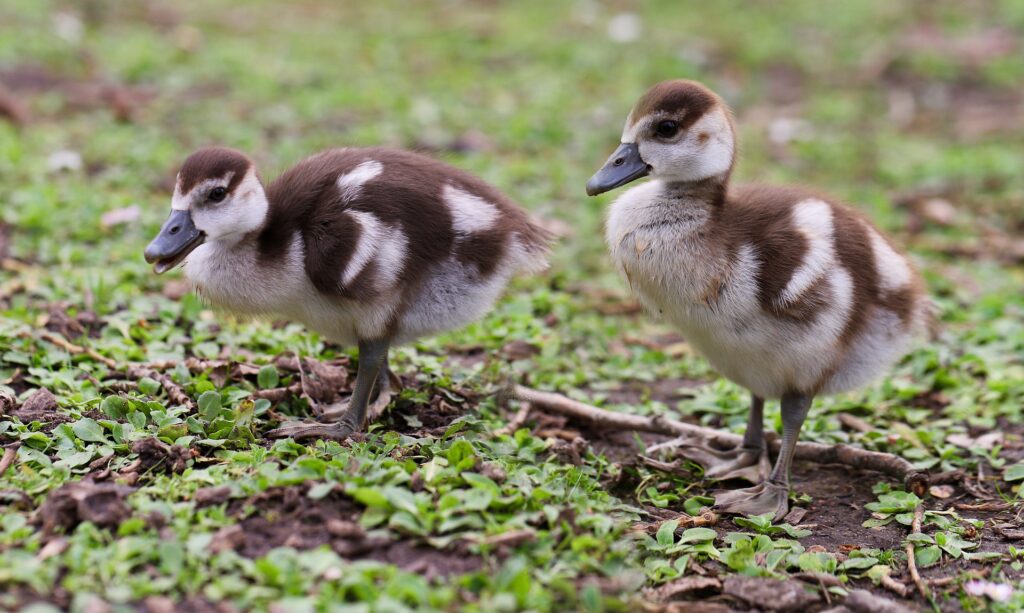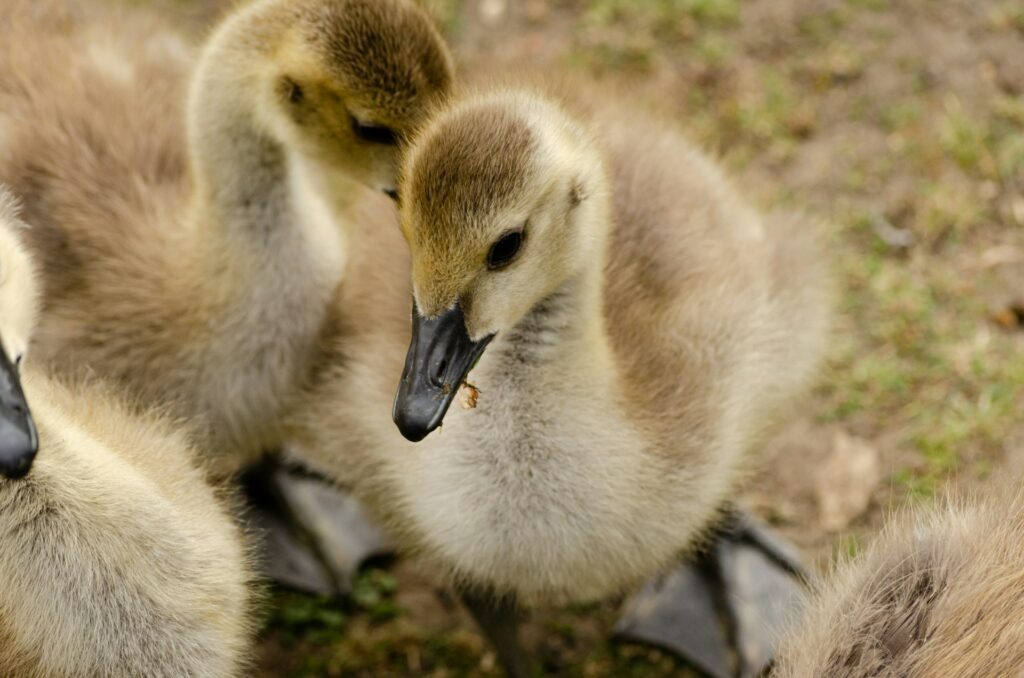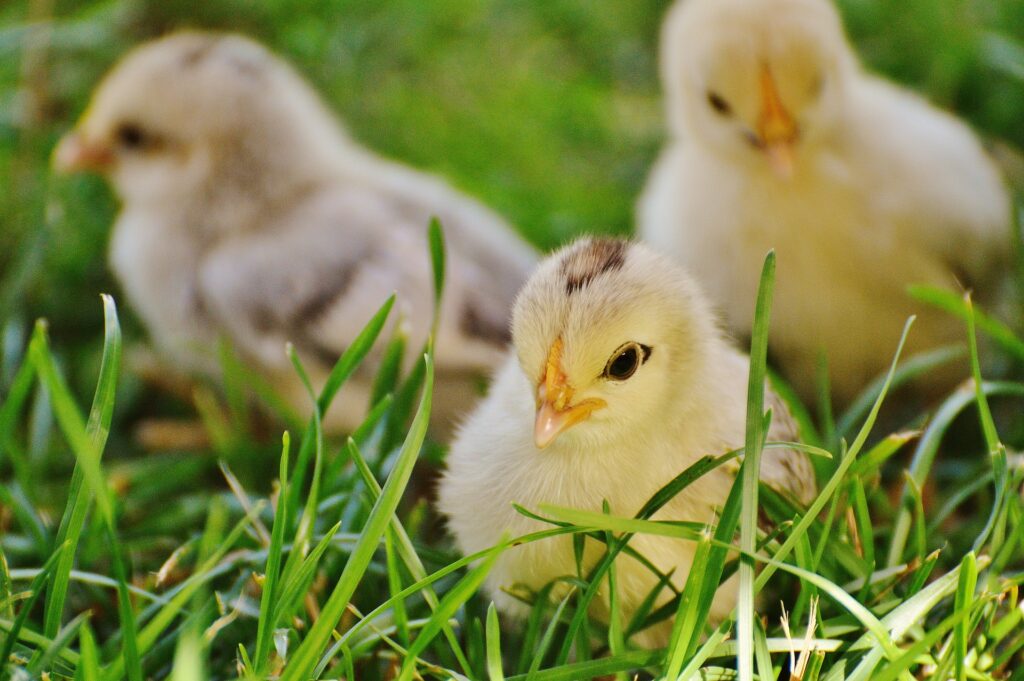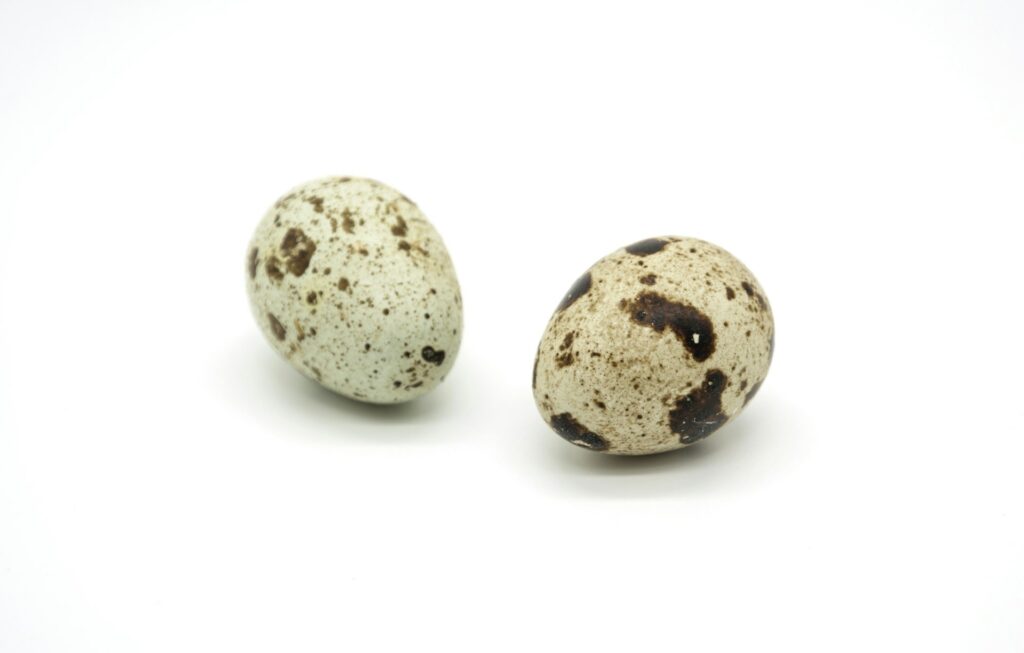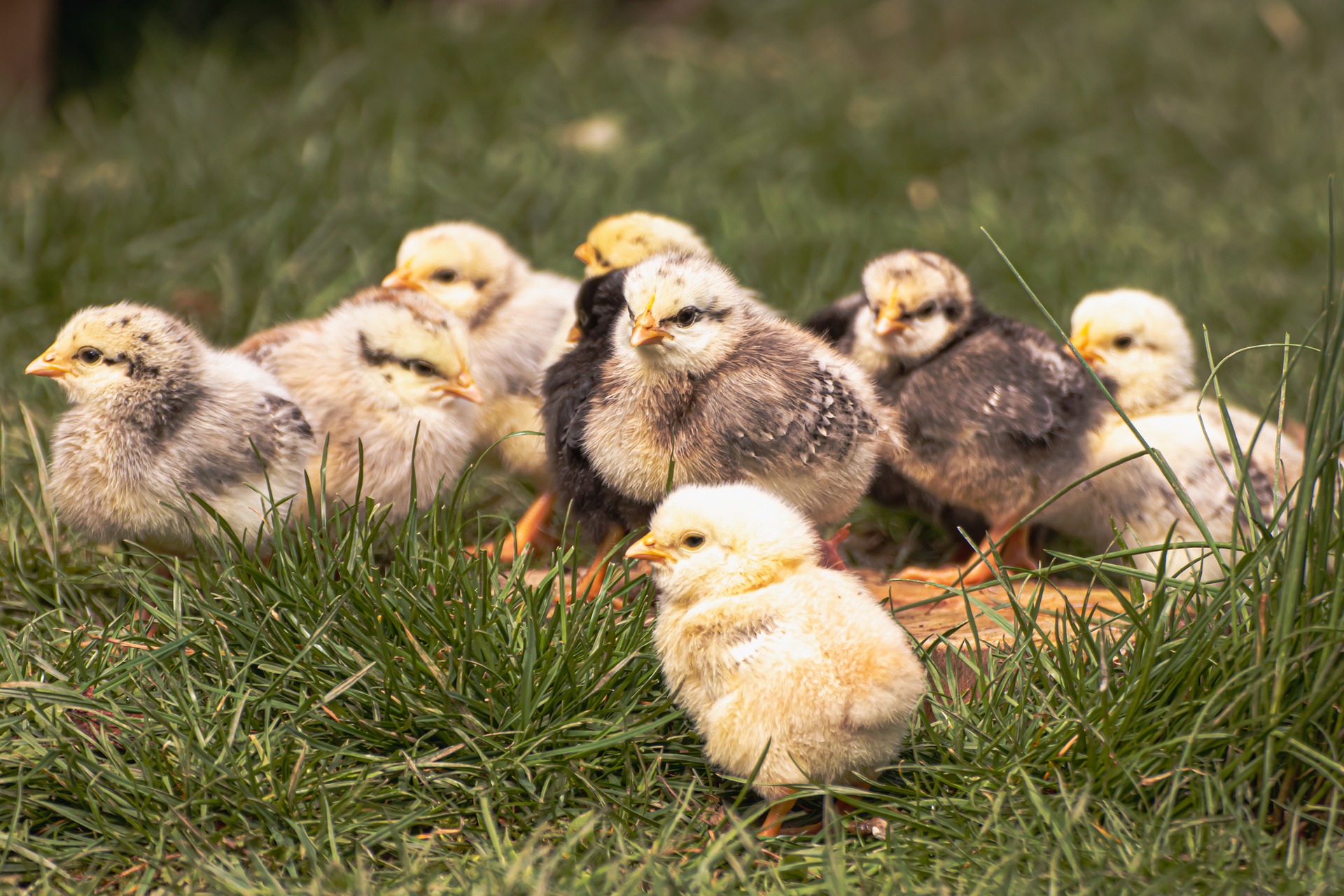The Big Poultry Hatchery Review: Where to Buy (And Not to Buy) Chickens as a First-Timer
So, you’re ready to dive into the world of chickens. You’ve built your chicken coop, set up your brooder, and purchased feeders and waterers for your new flock. The only question is… where should you get the chickens from?
There are tons of ways to start your flock, and in our opinion, you can’t go wrong with any of them. You can visit a farm store, buy hatching eggs on eBay, adopt hens from a friend, or even take a chance on hatching some farm stand eggs. However, we think that buying day-old chicks from a trusted, big-name hatchery is one of the best methods for newbies.
Why should you go with a hatchery when you start your first flock? We’ll cover all the reasons why in this guide. We’ll also go over which hatcheries we’ve had the best experiences with here at Little Onion Farm.
Why a Hatchery?
What are the benefits of starting with a hatchery? The first and most obvious is selection. Most hatcheries offer hundreds of chicken breeds and colors for you to choose from – more than any feed store, small farm, or breeder will ever be able to match. If you want to, you can order fifteen different chicks, and each one can be totally different. Most backyard chicken keepers treasure diverse flocks that lay rainbow egg baskets, and ordering from a hatchery is the best way to make that happen.
Second is, of course, convenience. Ordering day-old chicks is much easier than hatching eggs yourself. Plus, your new flock will come right to your door (or possibly to your local post office). While picking them up from your local feed store is easy, too, ordering from a hatchery may still be a superior option if you don’t live close to one.
Third is specificity. Not only can you choose the breeds and colors you want, but you can choose the gender, too. If you want, you can order nine hens and one rooster (or vice versa – really).
There is a small chance that your hatchery order may contain accidental roosters, or even accidental hens. While most hatcheries boast 90% accuracy or better on their sexed chicks, accidents do happen. If you can’t bear the thought of having to rehome an accidental rooster, you can always order sex-linked chicks, which are virtually 100% correct.
Fourth is health reasons. Your hatchery chicks can come vaccinated against common poultry diseases, some of which can be very serious. While many feed stores will also sell vaccinated chicks, any eggs you hatch yourself (and many chicks from small local operations) will not be vaccinated. While you don’t need to vaccinate your chickens to have a healthy flock, it can potentially save you from pain and heartache down the line.
There’s one big downside to ordering from a hatchery, though, and that’s price. Shipping live chicks is understandably expensive, even if the chickens themselves aren’t that much. The cost of express shipping often adds another $50 or more onto the cost of your chicks.
For the chickens themselves, expect to pay a few dollars per chick at minimum, with prices that rise as you choose rarer and rarer breeds. You’ll pay more for sexed hens, too, since they’re more in-demand. Some hatcheries sell juvenile and adult chickens, and while they eliminate the chick-raising step, they cost quite a bit more as well.
One of our favorite rare breed hatcheries, Greenfire Farms, sells many of their chicks for close to $100 apiece! (Most chicks from normal hatcheries won’t cost anywhere near that much, though – Greenfire Farms is a special case.)
Why Shouldn’t I Hatch My Own Eggs?
Why not hatch your own eggs? After all, watching the miracle of life happen in your own home is an incredible experience, especially for young children. Being able to watch little lives develop and grow is like nothing else. It’s absolutely worth doing!
That being said, there are a few reasons why we don’t recommend it for beginners. Firstly, incubators can be expensive. The cheapest incubators start at around $50-$60, and those cheap incubators often need additional parts or extra modifications to work well. Learning how to incubate eggs properly and maximize your hatch rates isn’t a walk in the park, either. Unless you plan to do it frequently, you’re better off letting the pros handle it the first time around.
Secondly, hatching eggs severely limits the amount of breeds you can keep in your first flock. Ordering from a hatchery allows you to pick and choose from all of their options, whereas ordering eggs usually only lets you hatch one or two breeds at a time. Technically, you can also order eggs from hatcheries, and this would allow you to get a good mix of options, but there’s no guarantee that all (or any) of the eggs will hatch.
Finally, hatching eggs can be unreliable. Not only can you end up with unknown amounts of hens and roosters, but you could end up with no chicks at all. Egg incubation is a delicate process, and even the pros have times where an entire batch of eggs goes wrong (we speak from experience). This isn’t to say that you should never try hatching fertile eggs; we just don’t recommend it when you’re first getting established.
Why Not the Farm Store?
Why shouldn’t you pick up chicks from your local TSC or farm store? While we think the farm store is a great alternative, especially if you just want to add a few chicks to your existing flock, the farm store does have some limitations to consider.
The main difficulty with farm stores is seasonal availability. Hatcheries often allow you to order chicks well into the summer and even fall, when farm stores often do not.
If you need chicks in the off-season, or if your hatchery’s all out of stock for the year, you do still have a few alternatives. If you order directly from a breeder, you can acquire chickens virtually any time of year. Some farms sell hatching eggs on eBay all year round, too.
Most farm stores only carry a few breeds at a time. As such, breed limitations can be a problem, too. While farm stores do get rare breeds in from time to time, they sell out quickly, and it’s nigh impossible to predict what will be where, and when it’ll be available.
The final issue with farm stores is mislabeling. Farm stores end up with chicks in the wrong bins all the time. Whether they receive them mislabeled from the hatchery, human error happens, or the chicks jump from bin to bin on their own, people frequently end up with the wrong breeds (or worse, roosters when you were supposed to have hens). As long as you accept that risk – it’s a small risk, after all – you shouldn’t hesitate to shop there!
Why Not Local Farms?
Why shouldn’t you shop at local farms? On the contrary, you absolutely should, especially if your local farm breeds and hatches their own chicks!
Unfortunately, the issue with local farms is that many of them order chicks from hatcheries and resell them, just like a farm store. While there’s nothing wrong with that from a business standpoint, it does kind of invalidate the reason for shopping locally in the first place.
If you do have a local farm that breeds and hatches their own chicks, that’s fantastic (and we’re jealous)! If you don’t, though, that’s totally normal. Any farms that do source their chicks from hatcheries will likely suffer from seasonal availability and limited breed selection, just like farm stores do.
Our Favorite Mail Order Hatcheries
Without further ado, here’s our shortlist of the most notable hatcheries that offer mail-order chicks (and often much more). Some we’ve ordered from already, and some we have not – but none made the list without good reason! If you’ve done business with one that you’d like to add to this list, please let us know!
MyPetChicken
MyPetChicken is the first hatchery that we patronized here at Little Onion Farm. They’re our favorite pick for beginners – here’s why:
- They offer tons of day-old chicks, fertile hatching eggs, started pullets, and even limited waterfowl
- They allow you to order as few as 3 baby chicks (depending on your zip code)
- They have tons of blogs and resources that teach you about the breeds they offer
- They also sell chicken coops, chicken keeping supplies, etc.
The chicks we’ve received from MPC have been strong and hardy, and most of them were sexed correctly (two accidental roosters total, spread across two different orders).
The main downside of MPC is their price. MyPetChicken does charge a premium for the chicks and coops they offer, as they’re more of a “boutique” supplier. As such, if you’re more of a thrifty, frugal, do-it-yourself-er, you may want to consider our other, less expensive options.
Cackle Hatchery
Cackle Hatchery is the second hatchery we ever used here at Little Onion Farm, and arguably our favorite hatchery at this point in time. They’re our best budget-friendly option – and they have a huge selection of breeds and varieties, too.
- Cackle Hatchery offers “surprise boxes” for sale every year, which provide an incredible discount with the trade-off of getting random breeds of straight-run chicks (plus the potential for turkey poults or ducklings)
- Cackle offers lots of other deals, like the “frypan special” or “heavy layer special”
- They offer day-old chicks, started pullets, and hatching eggs in multiple breeds, plus waterfowl, turkeys, guineas, and peafowl
We like Cackle Hatchery as a business, especially when it comes to transparency. You can witness much of what goes on at Cackle by following them on social media. They even have a “baby chick truck” that drives around their home state of Missouri, selling extra chicks!
We don’t really have any glaring downsides for Cackle. Their chicks are hardy and good quality, they come at a great price, and their business is one we feel we can trust.
Meyer Hatchery
While we haven’t yet purchased from Meyer Hatchery here at the Farm, we fully intend to do so sometime in the near future. Why? Because they’re a well-regarded hatchery located close to us geographically, so we can drive there to pick up chicks in-person or scope out their facilities.
- Meyer Hatchery is an established hatchery that carries a healthy variety of chicken breeds.
- Prices are very similar to MyPetChicken, but they offer assortments that can offer a better deal
- They also sell hatching eggs and juveniles, plus waterfowl, turkeys, quail, and other exotic birds like cranes
We like what we’ve seen of Meyer Hatchery so far, and we see their representatives at the Ohio Poultry National show each year. We can’t wait to see what Meyer has in store for us!
Murray McMurray Hatchery
Murray McMurray Hatchery is one of the most popular hatcheries among backyard chicken keepers, and for good reason. They’re well-established, with tons of breeds to choose from, and at good prices. While we’ve never purchased from them, we feel comfortable recommending them here because of their strong reputation.
- Murray McMurray carries a wide variety of chicken breeds
- Affordable prices in exchange for higher chick order minimums (usually 6+)
- Discounts for buying multiple of one breed
- Assortments available
- They sell waterfowl, turkeys, game birds, hatching eggs, and juveniles in addition to day-old chicks
The main downside of Murray McMurray is that they do not sex their bantams. In a world where most hatcheries now do offer sexed bantams, McMurray is, for now, a step behind. They may have plans to change that in the near future, though – who knows?
Another issue we’ve noticed about Murray McMurray is that their birds tend to be very “hatchery quality.” Many hatcheries breed for quantity, not quality. If you took a bird from a hatchery to a chicken show, they wouldn’t do very well, as most of them don’t match the ideal characteristics for their breed. McMurray’s birds tend to exemplify this problem more than other hatcheries we’ve seen, but that doesn’t mean that they should be out of the running for you – it’s just something to be aware of.
Other Big-Name Hatcheries
There are a lot of other big name hatcheries out there that we, at Little Onion Farm, don’t have experience with, or haven’t heard much about. We’re on a mission to try each of the big-name hatcheries at least once, but in the meantime, feel free to send us your stories! If you’ve ordered from a hatchery such as Ideal Poultry, Stromberg’s Chickens, Hoover’s Hatchery, or another we haven’t mentioned here, tell us about it at littleonionfarm@gmail.com – we’d love to add your thoughts and experiences to our guide.
Get ready for another green retailer – this one’s called Zero Waste Outlet! ZWO sells kitchen, laundry, bath, travel, and cleaning products with an eco-conscious focus. No matter your reason for shopping green, ZWO is a fantastic place to do so.
Zero Waste Outlet focuses mainly on consumable eco-friendly products, such as toothpaste tablets, soaps, detergent sheets, and more. They do have some environmentally-friendly reusable items, such as water bottles, bamboo dish brushes, reusable “paper” towels, etc.

Personally, I’m looking to move from bottled shampoos and conditioners to the bar versions, both for the health of my hair and the health of the environment. I like that I can purchase shampoo and conditioner bars, toothpaste, dish soap, and deodorant all in the same place – and all eco-friendly.
ZWO is family-owned, and, according to their About page, operated on a small 5-acre farm in rural Idaho. I love supporting small American family businesses, so while ZWO doesn’t have that many products I haven’t seen before, I like going out of my way to support businesses like theirs. If you agree with me, check them out!
– End of Sponsored Ad –
Special Mentions
The hatcheries we mention below don’t fit with the top list for various reasons, but we still wanted to mention them here as excellent alternatives. Read on to learn why!
Greenfire Farms
The famous (or infamous) Greenfire Farms is a hatchery that many chicken keepers have heard of. At Little Onion Farm, we’re big fans of Greenfire, but people tend to either love or hate them. Why? Because Greenfire Farms sells extremely rare breeds – and they’re not cheap.
We think that Greenfire Farms does fantastic things for the poultry world. After all, their goal is to hunt down, rescue, and import critically endangered chicken breeds and varieties, then bring them back to life. Their actions have directly led to the revival of breeds that may have completely died out otherwise. That’s an incredible feat of conservation!
Unfortunately, one of the inherent issues with their mission is that the resulting chicks can be fragile. Inbreeding is often an unavoidable reality when you’re working with endangered species, and that’s no different for chickens. Plus, when you import a chicken from another country, they may not have natural immune defenses to diseases present in the new country. As a result, Greenfire gets a lot of flak for selling fragile, high-mortality chicks.
We recommend that you don’t purchase from Greenfire Farms unless you’re prepared to accept this risk – and the cost.
MyShire Farms
Does your area disallow you from keeping chickens? Maybe you find that chickens are too much work because you travel or have physical limitations. Perhaps you live in an apartment, but want to start your self-sufficient journey with what space you already have. Maybe the costs associated with raising chickens and other large poultry make you balk.
If any of those match you, we highly recommend looking into coturnix quail from Myshire Farm.
Coturnix quail are small, easy-keeping birds that are fantastic options for those who don’t have space for chickens. You can even raise them indoors in pet cages, if need be (though we don’t necessarily recommend it – they can be stinky). They’re very productive layers of small, tasty eggs, and the males grow delicious cornish-game-hen-sized-carcasses for eating.
Note: there are tons of quail species that you can keep at home – Coturnix Quail are just one option! While Coturnix are the most domesticated and the best for eggs and meat, Button quail are another great option for those with small space constraints. Bobwhite quail are great for those who love hunting, especially with bird dogs, and they also produce great eggs. There are a few more species out there that people keep, but Coturnix, Bobwhite, and Button quail are the most common. Make sure to check your local laws and regulations before adopting any poultry, as not all species are allowed in all areas.
The only problem with coturnix quail is that the chicks are too fragile to ship through the mail. Your only true options are to order hatching eggs or juvenile/adult birds. Myshire offers basically every color of coturnix quail under the sun, and their variety packs make it easy and affordable to get all the best colors in your flock.
Breeders and Breed Clubs
If, through reading this guide, you’ve realized that hatcheries aren’t for you, we recommend that your turn your focus toward chicken breeders and breed clubs. While sourcing from these individuals can require more effort (and sometimes more expense), it’s well worth the extra.
While most private chicken breeders do not sell day-old chicks, almost all of them offer culls for sale. In the chicken world, a “cull” is any bird that you remove from your flock or breeding program. Most breeders choose to rehome these non-show-worthy-birds for a modest fee. They’ll still be head and shoulders better quality than those you’d get from hatcheries. The only caveat is that most culls will be juvenile or adult birds, not chicks.
Some breeders will also sell hatching eggs when their own incubators reach capacity for the season. Keep an eye out for that if you’d like chicks! We recommend joining breed groups on social media in order to network with breeders who work with your favorite chicken breeds. Just make sure to be respectful and follow the rules of any groups you join.
Roadside Stands
We want to make a special mention for roadside egg stands here. As long as you don’t live in a major metropolitan area, you likely have neighbors somewhere nearby who own chickens. Many of them have enough that they sell eggs, too – some may even have small businesses that they sell eggs under.
While hatching eggs from these roadside stands is a gamble, it’s a low-risk and practically victimless one. On the one hand, you don’t know what breeds your neighbors have. However, if you like the eggs they lay, you’ll like the chicks that hatch from them, too – they’re guaranteed to lay beautiful eggs, just like their parents!
The reason for the minor risk is because there’s no guarantee that the eggs you purchase will be fertile – not every chicken keeper owns a rooster, and they may have been stored in the fridge for a while. Even if they don’t hatch, though, you’ll only be out the price of a dozen eggs (our local egg seller offers them for just $4/dozen). Plus, if they are fertile and do hatch, that’s a pretty fantastic return on your investment – especially when you consider that fertile eggs often start at $1/egg at most places.
Where NOT to Buy Chickens
We’ve run into very few places that we’d actively recommend against purchasing from. The vast majority of both private sellers and large hatcheries have treated us well in our search for chicks and eggs alike. However, you should keep watch for scammers on places like Facebook and other social media sites.
These scammers are generally pretty easy to tell apart from legitimate businesses. Watch out for anyone who:
- Spams the same message over and over
- Speaks in imperfect or broken English
- Refuses to use PayPal Goods and Services for your transaction
- Gives you a phone number to contact you off Facebook (or on another platform)
- Refuses to let you come see their birds in person
- Sends you pictures copied from other places online (you can use Google Images to verify whether their pictures are original or not)
- Offers breeds or prices that seem too good to be true
Please, don’t feel like you need to go through with any purchase you don’t feel comfortable with. You can always back out – trust your gut! There will always be opportunities to find the chicken breeds or varieties you want from another seller, breeder, or hatchery later on.
Finally, if you’d like to enter in a chicken show someday, we recommend against purchasing from hatcheries. While you can technically use a hatchery to source your breeding stock, it leads to an uphill battle for quality. You may be able to get away with it for 4H shows, but for any state or national-level poultry show, it simply isn’t a good idea.
Instead, if you’re looking for show birds, join a breed club and source your birds from the dedicated breeders there. Or, network with breeders at the shows themselves! Some breeders also sell their eggs on eBay, but that method’s a little more risky. Use whatever method feels most comfortable and convenient to you, and make sure to familiarize yourself with your breed’s show standards so you know exactly what to look for.
Happy chickening!
This article may contain affiliate links and advertisements. If you make an online purchase after clicking one of the links in this article, we may receive a commission. As an Amazon Associate, Little Onion Farm earns from qualifying purchases. All of the logos, photographs, banners, and links in this post are the intellectual property of their respective owners, and are used to promote our affiliate partnerships. Thank you for supporting Little Onion Farm and our partners!
Copyright © 2025 Little Onion Farm – All Rights Reserved.
